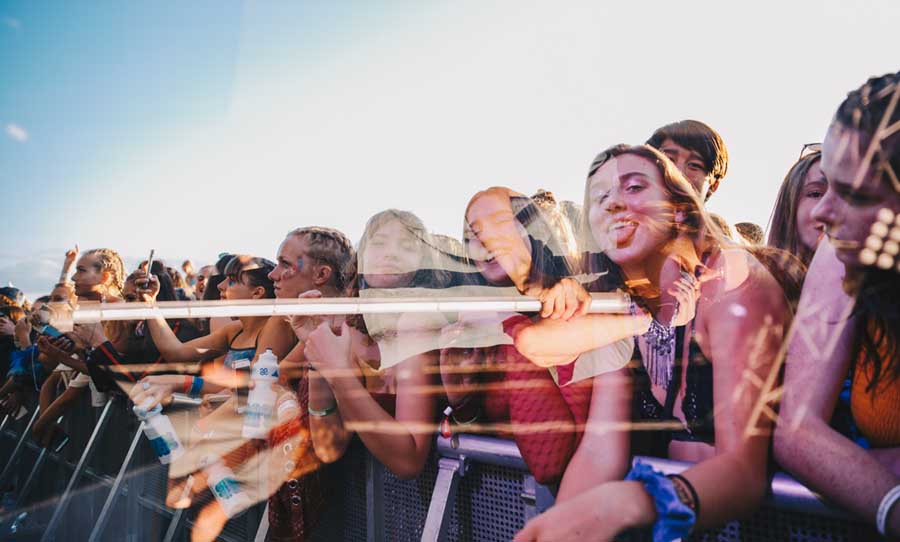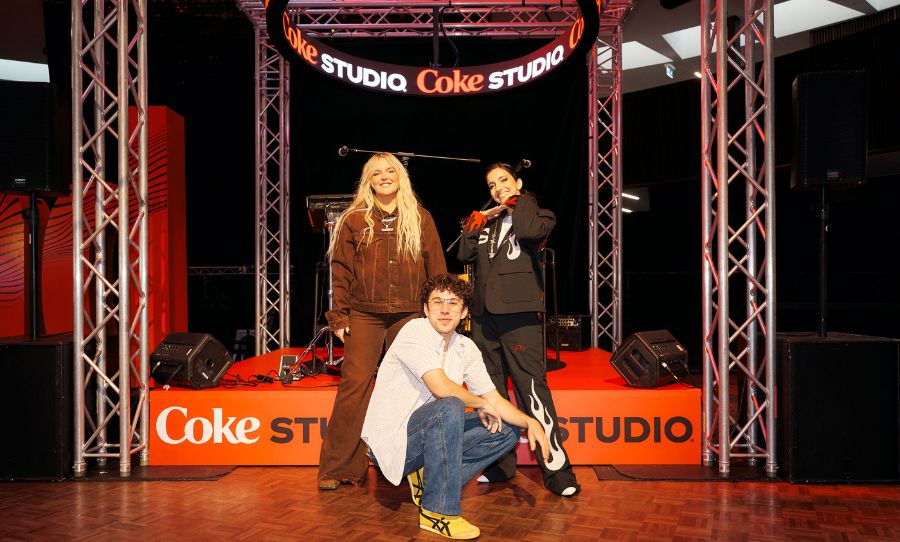This article appears in print in Happy Mag Issue 10: The Drug Issue. Grab your copy here.
I have taken drugs at every festival I’ve ever attended, and I’m not the only one. I’d even wager that cretins like myself are becoming quite common.
At a social level, the stigma around drugs has disintegrated more plainly than ever. Yet in the minds of events, organisations, and government, the message remains the same; drugs are evil and you should not take them.

Music festivals aren’t drug-free utopias and they never will be. It’s time to stop ignoring this fact and search for the best way to help people. It just might save lives.
I take drugs. My friends take drugs. People triple my age still take drugs. Almost everyone in my industry takes drugs. Yet according to festivals, I don’t exist. If I’m at the races, I’m invisible. According to venue owners, I never walked through the door. “Just Say No”. Zero tolerance policies at a police and government level are forcing businesses to disassociate entirely with the presence of narcotics at their event. One can’t be seen supporting such unscrupulous behaviour!
But a lack of information breeds a lack of safety. The simple acknowledgement that people are always going to snort, sniff, smoke, or sip their way through every music event in the country will open up a remarkable dialogue. Once you let the facade of a crime-free utopia dissipate, you can finally introduce the kind of education and harm reduction strategies that large-scale events desperately need.
Rather than sticking our collective head in the sand, it’s time to bite the bullet and help build a world where punters know as much about safe cocaine use as they do about about microbrewing.
I should mention that I hold festivals and their organisers in the highest regard, and don’t see the current situation as a result of their actions in any way. In NSW and all over Australia, these people are too often forced to bend their events into a shape that’s deemed suitable by the police and other regulatory bodies.
But as it stands, festivals are amongst the highest attended music events in the country, brands with voices that demand attention on an international scale. If real change is to happen on any measurable scale, it begins with the weight of their involvement. And right now, 99 percent of music and arts festivals in this country have adopted an unwavering anti-drug policy when it comes to messaging their patrons.
Saying no never stops the naughty boys and girls. In fact, it encourages even riskier behaviour. Using alcohol as an example, as soon as you’re not allowed to pack your own tinnies it becomes a game of bang for your buck. Beer, cider, even wine is left to the wayside in favour of easy-to-pack spirits, or anything else that won’t take up a few gallons of inventory. You want to get fucked up, you don’t want to get caught, so you sneak in the meanest shit you can find.
When this strong-armed approach is applied to any substance – legal or otherwise – in a controlled environment, the same effect occurs.
Suddenly you’re worried about bringing pot into a festival, one of the safest and most well-understood illicit drugs on the market. It’s bulky so it’s tough to find a spot for, and we all know how strong it smells – it’s probably the easiest drug to find if you’ve got two eyes and a sniffer dog at your disposal.
So, you turn to something less conspicuous, and with a far longer flight time. For me, that’s most often LSD. Sometimes it’s MDMA. For others it’s cocaine, methamphetamine, or ketamine.

As per the current state of play, it’s less daunting for punters to bring hard drugs into a festival than something like booze or weed. People are turning to dangerous substances that they don’t know the composition of simply because it’s easier. Not to mention that when beers are being sold at ten bucks a pop, drugs are cheaper.
While the various Australian state governments continue to beat around the bush when it comes to harm minimisation, a large onus now lies in the hands of music festivals. The time for organisers to keep a client-facing anti-drug policy is over. What we need is an acceptance that some people will cook themselves at just about every music event in Australia… no matter how hard it is for them to sneak in a pill or two. Right now, we need to make sure they’re safe.
A 2016 study at a “major music festival” surveyed 642 attendees who were kind enough to answer a few questions about their more hedonistic tendencies. 73.4% had taken drugs in the past 12 months. That same year, the National Drug Strategy Household Survey quizzed 24,000 people across Australia and found only 12.5% had used an illicit substance in the last 12 months. At the festival, 59.8% had taken ecstasy in that time, yet across Australia only 2.2% had.
These events represent, arguably, the largest recurring moments of substance abuse in the country. It’s time for pill testing. It’s time for drug disposal bins. It’s time for real communication.
Credit where credit’s due, this has already started, albeit at a fraction of the scale we need. At the most recent Falls Festival, the team made the informed decision of alerting festival-goers to the presence of a “dangerous orange pill that is currently in circulation around Australia”. With the absence of anonymous bins for patrons to discard their drugs, we’ll never know if this announcement saved anyone’s life. But it could have…
Despite their recent condemnation, Defquon has one of the more comprehensive drug safety guides of any festival in Australia posted on their website. Some of their warnings are as follows:
“Until there are proper drug testing facilities in place, you simply don’t know what you are putting into your body.”
“XTC pills in Australia are known as being the most dangerous pills in the world.”
“…the use of illicit substances such as GHB is also incredibly dangerous, especially if you have any alcohol in your system.”
“If someone in your group is feeling unwell or acting strangely – please take them immediately to our supportive medical tents. It’s better to do this straight away.”
2018 was the year I started seeing the presence of community groups like DanceWize, Drug Aware and many more at Australian festivals such as Lost Paradise, Strawberry Fields and many others. The effects of the Australian Festival Association’s recent establishment are yet to be seen, but their January 2018 open letter to the state governments of Australia demanding action for the lives that are being lost every year is the exact kick-off we need.
I have taken drugs at every festival I’ve been to, and I’ll probably continue to do so. The cry for evidence-based solutions started at the ground level with voices like mine, but this is as loud as we can get. It’s a critical time for drug safety in Australia and if these festivals stand their ground, the policy makers will follow.
This article appears in print in Happy Mag Issue 10: The Drug Issue. Grab your copy here.



